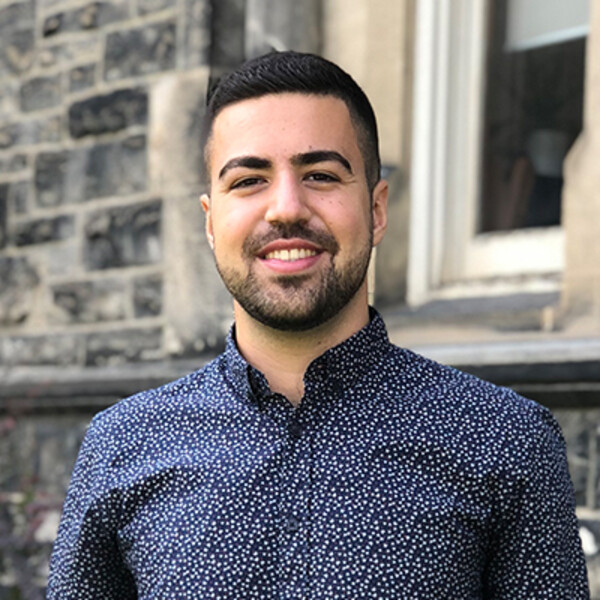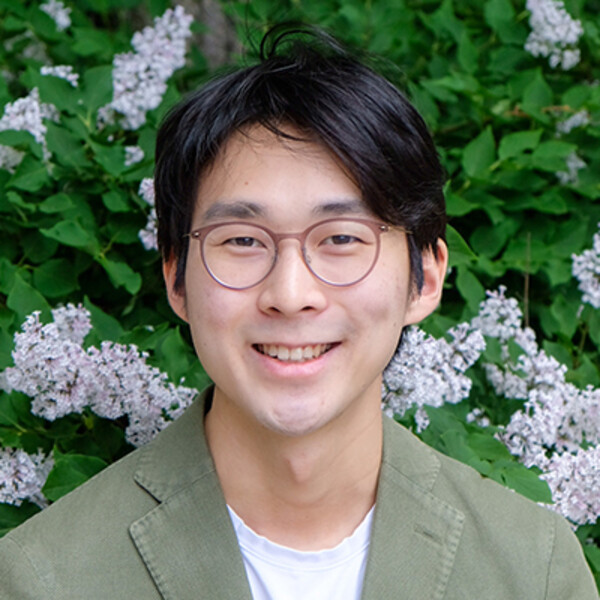LMP students receive CIHR Canadian Graduate Scholarships

Students in the Department of Laboratory Medicine and Pathobiology (LMP) in the Temerty Faculty of Medicine have a great track record in achieving awards.
This year is no exception with 14 students receiving a Canadian Graduate Masters Scholarship and two receiving the Canadian Graduate Doctoral Scholarship from the Canadian Institutes of Health Research (CIHR), recognizing “high-calibre Canadian graduate students”. This is the highest number of these awards received by LMP students in one academic year.
Another 19 received the Ontario Graduate Scholarship, as well as many more including a Vanier and others such as M&M Silver Awards.
Congratulations to all our students!
We spoke to some of our students to see what this means to them.

Siobhan Wilson, MSc student in the Adeli Lab
Research project: lipid abnormalities in pediatric obesity and insulin resistance: uncovering novel biomarkers for future cardiovascular disease and Type 2 Diabetes in high-risk adolescents.
“I have a deep passion and curiosity surrounding human physiology and cardiovascular disease pathology. My current research is an amalgamation of these personal interests. This project has also provided the unique opportunity to explore this interest in the pediatric setting, wherein the prevalence of cardiometabolic diseases is rapidly rising and early intervention is imperative.
I find the potential for direct clinical translation the most exciting and motivating aspect of my research within LMP. Research in this department is uniquely situated at the intersection of the laboratory, healthcare, and research. I’ve found this beneficial for collaborations between disciplines and to accelerate the clinical implementation of research endeavours.
This funding is imperative for my research by providing resources directly to my project and permitting additional analyses on patient samples and follow-up collections. In addition, the stipend top-up from this award will allow me to focus entirely on my research without financial concern.”

Richard Huang, MSc student in the Ohh Lab
Research project: clear cell renal cell carcinoma (ccRCC) - the most prevalent form of kidney cancer: attempting to characterize a new cellular and animal model of ccRCC, and to investigate possible differences in transcriptional expression between various models to look at targets for treatment in ccRCC and to determine the relevance of these models in research.
“ccRCC is often aggressive and resistant to cancer therapies when metastatic, and our research may help to determine the pathways that are involved in driving disease progression. This could allow us to target particular components of these pathways that can stop this process.
One of the most exciting parts of our research involves the wide range of techniques used to address the research questions, including those from bioinformatics and molecular biology. As a result of this, we are able to integrate the data that we receive from these experiments into a more comprehensive view of what is occurring at the cellular level.
I am grateful for this funding opportunity as it will help support our experimental plans and assist us in performing data analysis through the purchase of a new computer.”

Anglin Dent, an MSc student in the Phedias Diamandis Lab
Research project: utilizing AI tools to identify biologically distinct tumor sub-populations in glioblastoma brain tumors.
“Glioblastoma is the most common and aggressive form of adult brain cancer, with a very poor survival rate of less than two years post-diagnosis. One of the theorized reasons for why this disease is so hard to treat is because of its significant intra-tumoral heterogeneity, meaning the presence of biologically distinct sub-populations within each tumor. Currently, precision-medicine approaches focus on defining the overall molecular patterns of tumors, which may result in therapy selections that do not equally target all tumor cells and allow resistant sub-populations to survive.
My project aims to explore whether our AI tools can be used to help automate a multi-region sampling approach to detect biologically distinct tumor subpopulations. If successful, this approach could assist in proposing more effective drug combinations that together target a larger fraction of the overall tumor biology and ultimately lead to improved therapeutic responses in glioblastoma patients.
This research gives me the opportunity to integrate innovative new technologies with established laboratory research methods. It has been really exciting to approach a long-standing major cancer challenge from a new angle.
With this funding, I have been able to expand the scope of my project by increasing my dataset to include new samples and by extending my analysis with additional profiling tools.”

John Koussiouris, an MSc student in the Chandran Lab
Research project: investigating lipid metabolites in the serum of psoriatic arthritis (PsA) patients using liquid chromatography – mass spectrometry. PsA is a chronic, inflammatory disease of the joints and where tendons and ligaments connect to bone.
“I’m studying this because identifying biological markers (biomarkers) that accurately and reliably measure PsA disease activity is greatly needed to improve clinical management of the disease and is a step towards precision medicine.
I am excited to be working in the emerging field of metabolomics and aiding in the discovery of biomarkers for PsA, that can be translated into clinical practice.
This funding will help provide the equipment and resources to ensure that I am able to meaningfully contribute to this project.”

Michael Lee, an MSc student in the Phedias Diamandis Lab
Research project: developing deep learning classifiers to analyze whole slide images of pathology specimens and integrating this information into an automatable digital workflow to help pathologists with diagnosis and quality assurance.
“I believe it is only a matter of time until artificial intelligence becomes highly prevalent in medicine. During undergrad, I studied epigenetics of endothelial cells. Although basic science research is important, I also wanted to branch out into other research areas. By learning artificial intelligence and integrating my background in pathobiology, I strongly believe that I can act as a bridge between computer scientists and healthcare professionals.
LMP is a department that encompasses a wide variety of fields with the common goal of learning more about disease processes and finding ways we can treat them. Although it is still in its infancy, there is a growing acceptance of AI-based technologies in medicine now. In digital pathology, deep learning classifiers have already been shown to identify tumor types based on H&E-stained images. What excites me the most about my research specifically is its translatability. All the tools we are developing will be accessible for communal use in an online repository to improve uptake of these advances to both medical and research settings.
This funding will allow the lab to purchase new equipment, such as computers and GPUs. Due to the high-power demand of AI-related tasks the computers will allow us to achieve demanding tasks. I also intend to purchase a new laptop.”
Full list of CIHR recipients 2021
Canadian Graduate Scholarship-Masters (CGS-M) (CIHR)
|
Name |
Supervisor |
|---|---|
|
Anglin Dent |
Phedias Diamandis |
|
Karen Kai-Lin Fang |
Li Zhang |
|
Vernon Fong |
Michael Taylor |
|
Tse Wing Winnie Ho |
Warren Lee |
|
Richard Huang |
Michael Ohh |
|
John Koussiouris |
Vinod Chandran |
|
Michael Lee |
Phedias Diamandis |
|
Bryn Livingston |
Michael Taylor |
|
Mashiat Mimosa |
Rola Saleeb |
|
Matthew Renaud |
Isabelle Aubert |
|
Siobhan Wilson |
Khosrow Adeli |
|
Doyoon Won |
Alan Lazarus |
|
Jenny Zhang |
Jeremy Sivak |
Canadian Graduate Scholarship-Doctoral (CIHR)
|
Name |
Supervisor |
|---|---|
|
Shawn Goyal |
Stephen Girardin |
|
Ruilin Wu |
Jason Fish |



